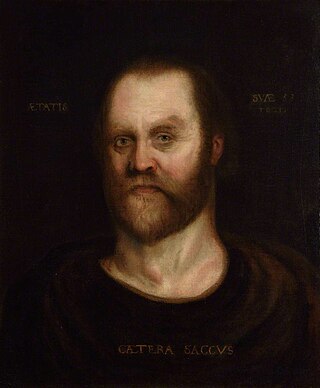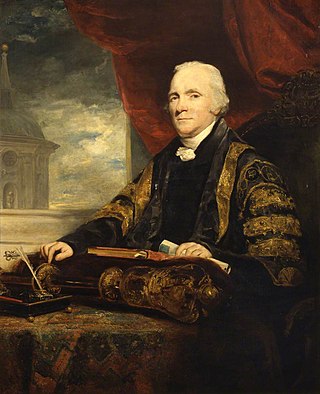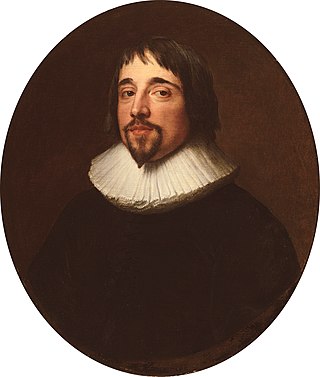Related Research Articles
Meyer Löw Schomberg was a German physician who moved to London and had a successful business there.

Sir Heneage Finch was an English nobleman, lawyer, Member of Parliament, and politician who sat in the House of Commons at various times between 1607 and 1626. He was Speaker of the English House of Commons in 1626.
Henry Clerke was an English academic and physician, President of Magdalen College, Oxford, from 1672.
John Mapletoft (1631–1721) was an English clergyman and physician.

John Gostlin was an English academic and physician, Master of Gonville and Caius College, Cambridge from 1619 and Regius Professor of Physic.
William Clagett (1646–1688) was an English clergyman, known as a controversialist.
Sir Edward Greaves, 1st Baronet, was an English physician.
John Farmery was an English physician.
Nathaniel Hodges M.D. (1629–1688) was an English physician, known for his work during the Great Plague of London and his written account Loimologia of it.
Simeon Fox, M.D. (1568–1642) was an English physician, who became President of the College of Physicians.
Samuel Foxe (1560–1630), was an English diarist and politician. He was a Member of the Parliament of England for Midhurst in 1589 and for Knaresborough in 1593.
John Fryer was an English physician, humanist and early reformer. He was a Member of the Parliament of England for Portsmouth in 1545.

John Latham, FRS, M.D. was an English physician. He became President of the Royal College of Physicians, and also updated their Pharmacopoeia.

John Syer Bristowe (1827–1895) was an English physician.

Baldwin Hamey the Younger M.D., FRCP (1600–1676) was an English physician, now best known as a medical biographer.

Martin Davy (1763–1839) was an English physician and academic, Master of Caius College, Cambridge from 1803. In later life he was also a cleric.
Thomas Moundeford M.D. (1550–1630) was an English academic and physician, President of the London College of Physicians for three periods.
John Betts was an English physician. His later professional standing was affected by his religious beliefs, and then his non-juring attitude after the Glorious Revolution.
John Twysden was an English physician.
George Hamilton Roe was an Irish physician.
References
![]() This article incorporates text from a publication now in the public domain : "Fryer, John (d.1672)". Dictionary of National Biography . London: Smith, Elder & Co. 1885–1900.
This article incorporates text from a publication now in the public domain : "Fryer, John (d.1672)". Dictionary of National Biography . London: Smith, Elder & Co. 1885–1900.